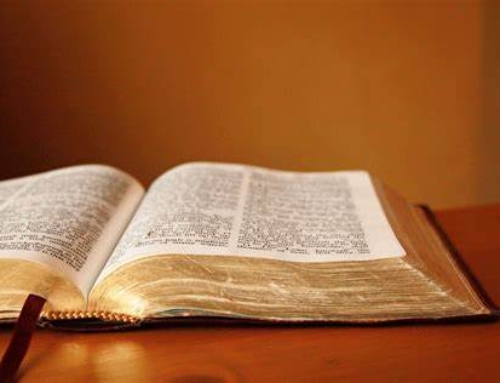2020 has brought so much unrest and raised the temperature among so many people who were already restless for one reason or another. Frightened by the pandemic, worried about financial collapse, divided over politics, rioting in the streets and turmoil in the markets–all of these have raised stress levels and sharpened already anxious lives.
It is not surprising, therefore, to find the unrest in society mirrored in the Church. We Christians are humans too. We also have anxieties, fears, resentment and bitterness in our hearts. In my book Immortal Combat I analyzed the “Sin of the World” — showing how the roots of pride well up into an instinct to blame others, lapse into rivalry and competition which engenders resentment and rage, and how this roils and boils in our lives and our society and our church too–and eventually erupts in virulent, snarling anger and violence.
One of the symptoms of this terror is that the rage is irrational and values are reversed. Those who are caught up in the cycle of resentment, rivalry and revenge call good evil and evil good. Rioters burn down buildings, loot and pillage and go home believing they’ve done a good night’s work. Learned people “cancel” brilliant writers, artists and noteworthy people and pull down the statues of noble, good and courageous men and women for some fault in their culture long ago claiming that these good people were bad. Religious people say a good and pious man’s work is bad while they praise others who are cynical, unscrupulous, greedy and proud. Good Christians acclaim politicians who are clearly bad men and women–overlooking their wickedness to confirm their own bias.
The sin of the world turns the world upside down.
But despite all this I remain an optimist, and there are three reasons why. Two reasons are rooted in little sayings I picked up when I was a student decades ago. The third reason is deeper than that. It’s just not in me to spend my time complaining about the state of the world and blaming other people for their sins. Why not? Because the first little saying that changed my life was a quote by the English writer F.D.Maurice. He wrote, “A man is most often right in what he affirms and wrong in what he denies.” When we get our head and heart around that one it is a real game changer. Put even more simply, whenever I am saying “Yes” to something or someone I am on the right track. Whenever I am saying “No” I am probably on the wrong track.
The Protestant faith of my youth was determined more by its denials than its affirmations. Their whole system was built on the “solas”: Sola Scriptura, sola gratia, sola fide etc. While they were pious and well meaning the solas were, by definition, limitations. They were for Scripture but not tradition. They were for grace but not nature. They were for faith but not works. Becoming Catholic was to embrace the great Both-And…not an Anglian via media which is no more than latitudinarianism, but a daring embrace of both. “A man is most often right in what he affirms and wrong in what he denies”? Yes please.
Must there be denials? Yes, of course, the discerning heart denies all that is itself a denial of some sort. The discerning heart denies all that is a distortion of some greater good or the destruction of some greater good. To affirm and not deny is to affirm the highest good, the highest values, the highest truth and through that affirmation there is a denial of all that is lower, mean and degrading. The greater the affirmation the greater the denial may be of that which destroys or distorts that which is beautiful, good and true.
The second saying that changed my life for the better is a quotation that C.S.Lewis referenced by the poet Thomas Traherne. In his Centuries of Meditations Traherne–a most beautiful soul–wrote, “Can a man be just unless he love all things according to their worth?” This saying holds hands neatly with the saying by F.D.Maurice because it gives heart and depth to the affirmations. We are to love all things….all things according to their worth. Now, clearly some things are have more worth than others. We therefore love them more. The art of discernment is to look hard at the world, to observe people and circumstances, things and actions and see them for their true worth and to love them accordingly. This is difficult in our artificial, plastic, fast paced, technological world. It is difficult to see what is authentic in the midst of all the fakery, lies, artificiality and magic shows that our entertainment addicted society offers up. It is hard to see true worth in a world prostituted by lust, degraded by utilitarianism and cheapened by commercialism.
To love all things according to their worth requires a contemplative heart. Only when we sit still in the presence of the Blessed Sacrament will we have the guiding light that helps us to see and understand the worth of everything else in relation to that on most blessed gift of infinite worth. When we do, however, and if we do, then we will soon also have the gift to see the true worth of ourselves and all others and all things and love all things according to their worth.
Do I do this every day? I do not. I wish I did, but I fail. I am distracted. I fall into hatred and jealousy, fear and distrust, but I wish I did not.
Quick now, here is the third thing that makes me an optimist–and it is more than shallow optimism. It is a very deep and abiding trust in Divine Providence–a trust that is so deep that I believe it comes to me from generations past for I am blessed to come from many generations on both sides of my family of true and heartfelt believers. This faith I have is a gift. It is nothing of my own doing. It is simply there, and it is something I find very difficult to articulate except to say that I know in whom I have believed and am persuaded that he is able to keep that which I’ve committed to him unto that day. The simple way of saying it is in the book of Romans where St Paul writes the astounding and earth shaking words, “We know that all things work together for good for those who love God and who are called according to his purpose.”
It is simply this: I do not despair over corruption and immorality in the Catholic Church. I do not fear revolution or societal collapse. I do not fret over heresy and schism. These blots and wounds are part of this sad and broken world. I grieve over them as I grieve over my own sins, but I do not fret or rage. If I can do something in my own parish, my own family, my own small corner to put things right and work for reconciliation, reparation and redemption, then I will do what I can with what I have where I am. Other than that, I know that God really does bring all things together. He weaves the horrors into the other side of glory. If the cross, burial and resurrection is about anything at all, then it is about a God who takes the very worst thing that could have happened–that the religious people–the good people–the righteous people–tortured and murdered the precious Son of God and Son of Mary. God the loving Father took that most horrible thing and turned it into the very action of salvation and light for the very people who did such a terrible thing.
This is not only what I believe. It is what I know.
That is why I see the worst, but trust in the best. This is why I try to give people the benefit of the doubt, why I hope to affirm and not deny and why I strive to love all things according to their worth.
I try to do these things and see the world this way because that is what God himself does, and he made me in his image and likeness.







When we were kids we were taught the 3 R’s: Reading. ‘Riting. ‘Rithmatic.
Here Father tells of the adult 3 R’s: Resentment. Rivalry. Revenge.
Then he provides a better set of 3 R’s: Reconciliation. Reparation. Redemption. He encourages us to build HOPE
By reconciling: restoring right relationships.
By reparation: helping those we have harmed. And
By redemption: the gain we get in exchange for clearing a debt.
We can do this by doing our best to LOVE others in spite of our differences.